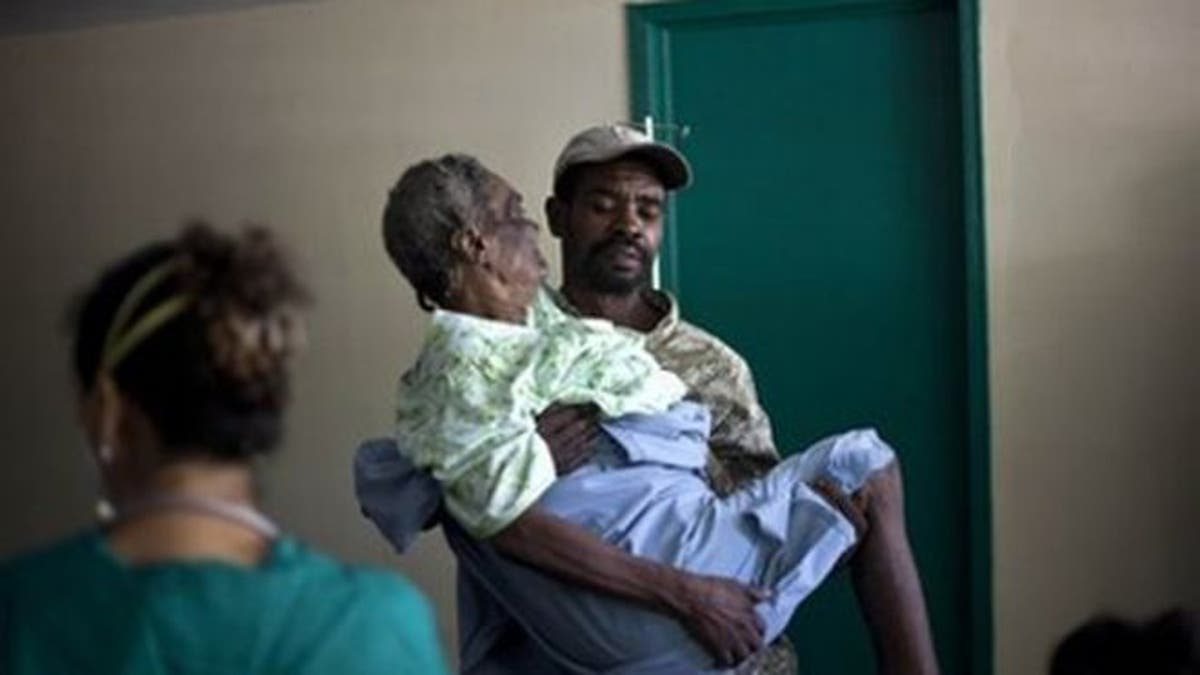
In this photo from Nov. 8, 2010, a woman suffering from cholera symptoms is carried by a volunteer at the hospital in Archaie, Haiti. (AP Photo)
LONDON – An oral vaccine has reduced cases of severe cholera by nearly 40 percent in a key trial in Bangladeshi slums, suggesting the shot could be used routinely to help endemic countries control the life-threatening disease.
In the first real-life trial of the vaccine, called Shanchol and recommended by the World Health Organisation (WHO), researchers said it proved safe, easy to administer and relatively inexpensive at $1.85 per dose.
More than one billion people are thought to be at risk of cholera in more than 50 countries where it is endemic. The disease causes acute, watery diarrhea and spreads from person to person through water or food contaminated with Vibrio cholerae bacteria.
The infection can kill within hours and people with weaker immune systems - such as children or people with HIV - are at particularly high risk. Cholera kills some 91,000 of the 2.8 million people it affects in endemic regions each year.
Firdausi Qadri of the International Centre for Diarrhoeal Disease Research in Dhaka, Bangladesh, said the results of this trial, published in The Lancet medical journal, show how a routine oral cholera vaccination program "could substantially reduce the burden of disease and greatly contribute to cholera control efforts".
Simon Clarke, an expert in cellular microbiology at Britain's University of Reading who was not involved in the trial, said the result was "significant and exciting".
"While cholera vaccines have been available for quite some time, most need to be injected, offer only limited and brief protection and can cause side effects," he said.
"Developing new, safe, longer-lasting vaccines which can be widely and easily administered is therefore vital ... (and) this vaccine could be a powerful weapon."
The study involved almost 27,0000 residents aged 1 year and older from the urban slums of Mirpur in Dhaka, who were at high risk of cholera infection due to overcrowding and poor sanitation.
They were randomly assigned to three groups -- with one receiving the Shanchol vaccine, a second getting the vaccine plus extra help to improve hand-washing and to provide clean drinking water and the third getting no intervention.
The results showed vaccination with two doses of Shanchol reduced the overall incidence of severely dehydrating cholera by 37 percent after two years in the vaccine-only group and by 45 percent in combination with the hand washing and clean drinking water program.
A separate analysis of individual protection showed the vaccine gave 53 percent protection during the 2 year follow-up.
